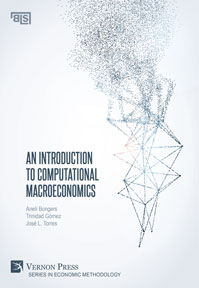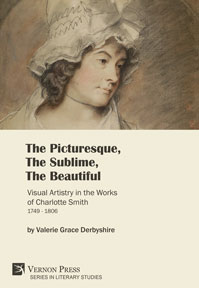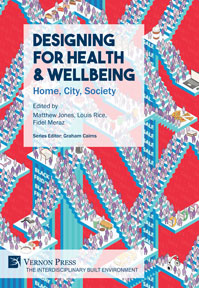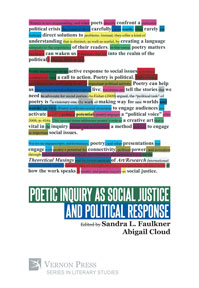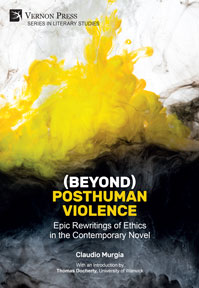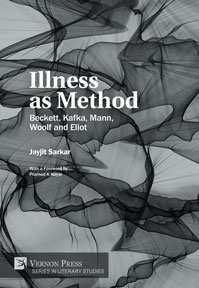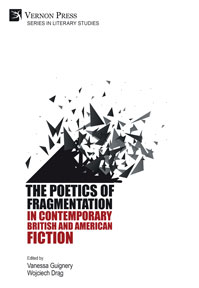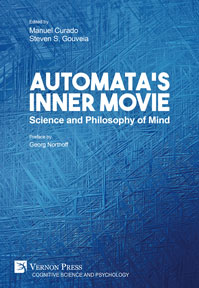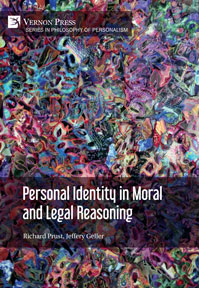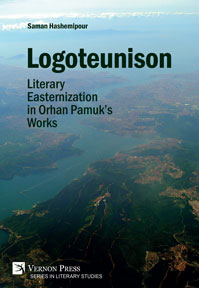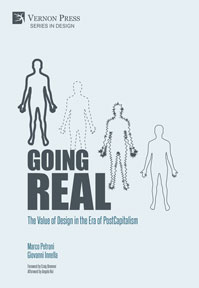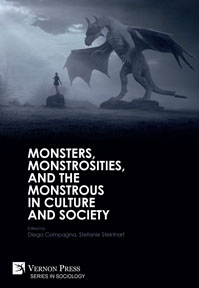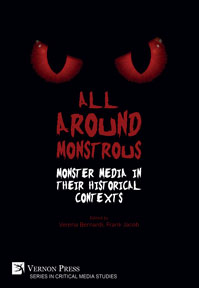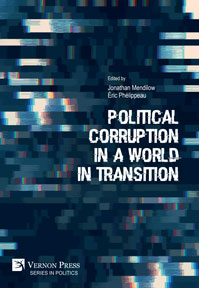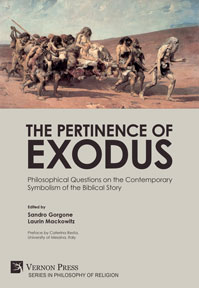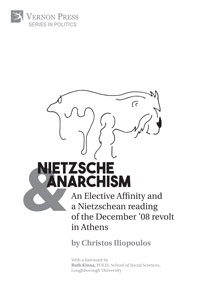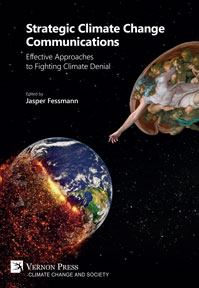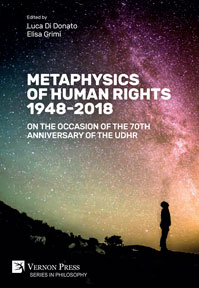Search
Browse
by Publication status
by Subject
Anthropology (26) Art (126) Business and Finance (27) Cognitive Science and Psychology (56) Communication and Journalism (49) Economics (63) Education (70) History (150) Human Geography (22) Interdisciplinary (43) Language and Linguistics (135) Law (16) Music Studies (19) Philosophy (162) Political Science and International Relations (104) Sociology (317) Statistics and Quantitative Methods (21)by Series
Series in Literary Studies (68) Series in Philosophy (59) Series in Education (54) Series in Sociology (45) Bridging Languages and Scholarship (33) Series in Politics (32) Series in World History (32) Series in Language and Linguistics (25) Series in Philosophy of Religion (22) Cognitive Science and Psychology (21) Series in American History (20) Series in Art (19) Critical Perspectives on Social Science (18) Series in Cinema and Culture (16) Series in Critical Media Studies (16) Curating and Interpreting Culture (15) Series on the History of Art (14) Economics (14) Series in Anthropology (13) Series in Business and Finance (13) Series in Music (12) Series in Communication (9) Series in Performing Arts (9) Philosophy of Personalism (8) Series in Law (8) Series on Climate Change and Society (8) Series in Economic Methodology (7) Women's Studies (7) Classics in Economics (6) Series in Economic Development (6) Philosophy of Forgiveness (5) Series in Built Environment (5) Series in Economic History (5) Series in Philosophy of Science (5) Series in Social Equality and Justice (5) Series on the History of Science (4) Serie En Estudios Literarios (3) Serie en Sociología (3) Series in Contemporary History (3) Series in Creative Writing Studies (3) Series in Design (3) The Interdisciplinary Built Environment (3) Serie en Comunicación y Medios (2) Serie en Historia (2) Serie en Música (2) Series in Heritage Studies (2) Series in Innovation Studies (2) Series in Philosophy of Race (2) Serie en Ciencias Políticas (1) Serie en Entorno Construido (1) Serie en Estudios Culturales (1) Serie en Filosofía (1) Serie en Filosofía de la Ciencia (1) Serie sobre Cambio Climático y Sociedad (1) Series in Classical Studies (1) Series in Economics of Technological Change (1) Series in Urban Studies (1)by Language
English Spanishby Author
Browsing with filters
Market Orientation of Nonprofit Organizations: An Indian Perspective
Renjini D., Cochin University of Science and Technology, India
and Mary Joseph T., Cochin University of Science and Technology, India
Availability: In stock
135pp. ¦ $34 £25 €29
This book is an insightful account on market orientation and how it enhances the performance of non-profit organizations in India. The book provides the readers with a succinct, yet comprehensive view of scholarly research on the concepts of market orientation, non-profit marketing, and organizational performance of non-profit organizations and demonstrates why and how market orientation can be an effective organizational orientation for Indian non-profit organizations. Despite the growing importance of non-profit sector in socio-economic well-being of societies, academic debate and research in developing economy context in this field is glaringly sparse. This book attempts to addresses this gap in literature by analyzing market orientation and related concepts against the background of environmental conditions in a typical emerging economy context. Therefore, it will be especially beneficial to academics, researchers, students and practitioners in the fields of non-profit management, strategic marketing and social work, desirous of advancing their knowledge in nonprofit market orientation in these settings.
An Introduction to Computational Macroeconomics
Anelí Bongers, Universidad de Málaga, Spain
et al.
Availability: In stock
320pp. ¦ $65 £49 €55
This book presents an introduction to computational macroeconomics, using a new approach to the study of dynamic macroeconomic models. It solves a variety of models in discrete time numerically, using a Microsoft Excel spreadsheet as a computer tool. The solved models include dynamic macroeconomic models with rational expectations, both non-microfounded and microfounded, constituting a novel approach that facilitates the learning and use of dynamic general equilibrium models, which have now become the principal tool for macroeconomic analysis. Spreadsheets are widely known and relatively easy to use, meaning that the computer skills needed to work with dynamic general equilibrium models are affordable for undergraduate students in Advanced Macroeconomics courses.
The Picturesque, The Sublime, The Beautiful: Visual Artistry in the Works of Charlotte Smith (1749-1806)
Valerie Derbyshire, University of Sheffield
Availability: In stock
316pp. ¦ $63 £48 €54
This book considers the relationships between British Romantic-era novelist, poet and writer of educational works for children, Charlotte Smith (1749-1806), and a number of visual artists of the eighteenth century with whom she had connections. By exploring these associations with artists such as George Smith of Chichester, George Romney, James Northcote, John Raphael Smith and Emma Smith, the book demonstrates how the artwork of these individual artists influenced Charlotte Smith’s literary corpus. It also shows a mutual influence: how the literary works of Charlotte Smith impacted the corpora of these artists. This study uncovers information which was not heretofore known regarding these artists: it reveals a mistaken attribution of a sketch which accompanied the second volume of Smith’s Elegiac Sonnets (1797) and sheds light on a print, held by the British Museum, which was previously shrouded in mystery. The artworks also enhance the existing scholarly knowledge about Smith’s biography. This book analyses the tropes and motifs employed by Smith’s artist-associates in the context of the popular aesthetics of the period and undertakes parallel readings between such visual artistry and Smith’s literary works. The book deliberates on how Smith utilises these aesthetics as narrative devices, making use of the tropes of the picturesque, the sublime and the beautiful, as well as that of a national British heraldic artwork, in order to produce and enhance meaning in her literary oeuvre. Thus, Smith uses aesthetic structures as vehicles for social critique, commentating on political, gender, moral and class concerns in addition to enhancing the perceived authenticity of her own artistry. The scholarship aims to correct the common misperception that Smith was a lonely marginal figure of Romanticism and instead asserts her central position in an enormous network of key artistic figures of British Romanticism.
Designing for Health & Wellbeing: Home, City, Society
Edited by
Matthew Jones, Birmingham City University et al.
Availability: In stock
290pp. ¦ $63 £47 €54
Rapid urbanization represents major threats and challenges to personal and public health. The World Health Organisation identifies the ‘urban health threat’ as three-fold: infectious diseases, non-communicable diseases; and violence and injury from, amongst other things, road traffic. Within this tripartite structure of health issues in the built environment, there are multiple individual issues affecting both the developed and the developing worlds and the global north and south. Reflecting on a broad set of interrelated concerns about health and the design of the places we inhabit, this book seeks to better understand the interconnectedness and potential solutions to the problems associated with health and the built environment. Divided into three key themes: home, city, and society, each section presents a number of research chapters that explore global processes, transformative praxis and emergent trends in architecture, urban design and healthy city research. Drawing together practicing architects, academics, scholars, public health professional and activists from around the world to provide perspectives on design for health, this book includes emerging research on: healthy homes, walkable cities, design for ageing, dementia and the built environment, health equality and urban poverty, community health services, neighbourhood support and wellbeing, urban sanitation and communicable disease, the role of transport infrastructures and government policy, and the cost implications of ‘unhealthy’ cities etc. To that end, this book examines alternative and radical ways of practicing architecture and the re-imagining of the profession of architecture through a lens of human health.
Poetic Inquiry as Social Justice and Political Response
Edited by
Sandra L. Faulkner, Bowling Green State University, USA
and Abigail Cloud, Bowling Green State University, USA
Availability: In stock
266pp. ¦ $59 £44 €50
This volume speaks to the use of poetry in critical qualitative research and practice focused on social justice. In this collection, poetry is a response, a call to action, agitation, and a frame for future social justice work. The authors engage with poetry’s potential for connectivity, political power, and evocation through methodological, theoretical, performative, and empirical work. The poet-researchers consider questions of how poetry and Poetic Inquiry can be a response to political and social events, be used as a pedagogical tool to critique inequitable social structures, and how Poetic Inquiry speaks to our local identities and politics. The authors answer the question: “What spaces can poetry create for dialogue about critical awareness, social justice, and re-visioning of social, cultural, and political worlds?” This volume adds to the growing body of Poetic Inquiry through the demonstration of poetry as political action, response, and reflective practice. We hope this collection inspires you to write and engage with political poetry to realize the power of poetry as political action, response, and reflective practice.
(Beyond) Posthuman Violence: Epic Rewritings of Ethics in the Contemporary Novel
Claudio Murgia, University of Warwick
Availability: In stock
220pp. ¦ $60 £45 €51
Neuroscience tells us that the brain is nothing but a metaphor machine capable of extracting meaning from a chaotic reality. Following Agamben, Arendt, Benjamin and Žižek, a theory of violence can be established according to which violence is a reaction on the part of the individual to the frustration generated by having her metaphor machine suppressed by the mythic narrative of the Law. In opposition to mythic violence, Benjamin posits the justice of divine violence. Divine justice is an excess of life, the very uniqueness of the metaphor machine. The individual is affected by a difficulty to communicate her metaphor machine to the Other, as if it were inexpressible. This work explores how the characters in the works of David Foster Wallace, Cormac MacCarthy, J. G. Ballard, Bret Easton Ellis, Chuck Palahniuk, William Gibson, Neal Stephenson, Maurice G. Dantec and China Mieville suffer from these limits of language and the constrictions of the Law. Through violence they look for their individual Voice, intended as their will-to-say, the ‘pure taking place of language’ (Agamben). In their struggle to be heard these characters are however deaf to the Voice of the Other. There is a need for a new Ethics of Narratives expressed through an Epic of the Voice founded on the will-to-listen, along the lines of the concept of the posthuman theorized by Rosi Braidotti. Here subjectivity is a process of constant autopoiesis dependent on the relationship the individual has with the Other and the environment around her, that is, in the reciprocal will-to-say and will-to-listen. Human beings can meet in the taking-place of language, in the place before the suppressive language of the Law is even born, in a meeting of Voices.
Illness as Method: Beckett, Kafka, Mann, Woolf and Eliot
Jayjit Sarkar, Raiganj University, India
Availability: In stock
116pp. ¦ $39 £29 €33
This work questions the problematic connections between illness and modernity: the complicated negotiations involving the body both in its physicality and phenomenology and the poetics and praxiality of illness. The project, which is predominantly conceptual in nature, for it does not see illness solely as a clinical-physical category (leaning heavily on the medical sciences), but rather perspectivizes its phenomenology and pathographical limits and manifestations, lateralizing on its critical correspondences with a selection of modernist texts ranging from Virginia Woolf to Samuel Beckett. The book unearths different ‘possibilities’ of illness without denying its (quite natural) association with morbidity, pain, suffering, dying and death. It looks at illness and its effects on different bodies phenomenologically with the help of some twentieth-century philosophers, including Martin Heidegger, Jean Luc-Nancy, Maurice Merleau-Ponty, Jean-Paul Sartre and Emmanuel Levinas. The book locates these phenomenological understandings in a reading of some of the important literary works of early twentieth-century Europe — five literary works from five different genres (poetry, drama, fiction, non-fiction and epistle) — critiquing the relevance of the phenomenological body in the literary and narrative world of the texts. The author deals with Samuel Beckett’s Endgame, Franz Kafka’s letters, Thomas Mann’s Death in Venice, Virginia Woolf’s On Being Ill and T. S. Eliot’s The Wasteland within the aesthetico-philosophical space and the epistemic dialogism that modernist aesthetics implies and espouses.
The Poetics of Fragmentation in Contemporary British and American Fiction
Edited by
Vanessa Guignery, École Normale Supérieure de Lyon, France
and Wojciech Drąg, University of Wrocław, Poland
Availability: In stock
252pp. ¦ $61 £46 €52
The last decades have seen a revival of fragmentation in British and American works of fiction that deny linearity, coherence and continuity in favour of disruption, gaps and fissures. Authors such as Ali Smith, David Mitchell and David Shields have sought new ways of representing our global, media-saturated contemporary experience which differ from modernist and postmodernist experimentations from which the writers nevertheless draw inspiration. This volume aims to investigate some of the most important contributions to fragmentary literature from British and American writers since the 1990s, with a particular emphasis on texts released in the twenty-first century. The chapters within examine whether contemporary forms of literary fragmentation constitute a return to the modernist episteme or the fragmented literature of exhaustion of the 1960s, mark a continuity with postmodernist aesthetics or signal a deviation from past models and an attempt to reflect today’s accelerated culture of social media and over-communication. Contributors theorise and classify literary fragments, examine the relationship between fragmentation and the Zeitgeist (influenced by globalisation, media saturation and social networks), analyse the mechanics of multimodal and multimedial fictions, and consider the capacity of literary fragmentation to represent personal or collective trauma and to address ethical concerns. They also investigate the ways in which the architecture of the printed book is destabilised and how aesthetic processes involving fragmentation, bricolage and/or collage raise ontological, ethical and epistemological questions about the globalised contemporary world we live in and its relation to the self and the other. Besides the aforementioned authors, the volume makes reference to the works of J. G. Ballard, Julian Barnes, Mark Z. Danielewski, David Markson, Jonathan Safran Foer, David Foster Wallace, Jeanette Winterson and several others.
Automata’s Inner Movie: Science and Philosophy of Mind
Edited by
Manuel Curado, University of Minho, Portugal
and Steven S. Gouveia, University of Porto, Portugal
Availability: In stock
387pp. ¦ $66 £50 €56
This book brings together researchers from a variety of fields to jointly present and discuss some of the most relevant problems around the conscious mind. This academic plurality perfectly characterizes the complexity with which a current researcher is confronted to discuss and work on this topic. The volume is organized as follows: Part I introduces the general problems of Philosophy of Mind and some historical perspectives. Part II focuses on understanding the input that the empirical sciences can offer to the theoretical problems. Part III discusses some of the core concepts of the field, namely, perception, memory and experience. Part IV debates human and artificial intelligence and, finally, Part V deliberates about the computation and the ethics of big data and artificial intelligence. The book contains valuable material for researchers in several fields such as Cognitive Science and Neuroscience, Psychology and Artificial Intelligence, and Philosophy. It can also be used as a guide to some courses at various levels, from BAs to MAs and PhD courses of several fields. It is our belief, as it is claimed in the preface by Georg Northoff, that there is an urgent need for a truly transdisciplinary exchange between philosophy and the sciences in order to stimulate some real progress. We hope that this book will become a sound step for such an interdisciplinary enterprise.
Personal Identity in Moral and Legal Reasoning
Richard Prust, St. Andrews University, USA
and Jeffery Geller, University of North Carolina at Pembroke
Availability: In stock
132pp. ¦ $43 £32 €36
Many questions about moral and legal judgments hinge on how we understand the identity of the agents. The intractability of many of these questions stems, this book argues, from ignoring how we actually connect actions with agents. When making everyday judgments about the morality or legality of actions, we do not use Aristotelian logic but what is termed “character logic”. The difference is crucial because implicit in character logic is an understanding of personal identity that is both coherent and intuitively familiar. A person, as we conceptualize him in moral and legal contexts, is a character of resolve. By unpacking what it means to be a character of resolve, this book reveals what underwrites our most fundamental beliefs about a person’s rights and responsibilities. It also provides a new and useful perspective on a variety of issues about rights and responsibilities that perennially occupy philosophers. This book discusses the following: • How we can make better sense of “human rights” if we think of them as “personal rights”. • How the right to be civilly disobedient, in contrast with ordinary law-breaking, can be justified as a personal right. • What basis we have for holding that someone’s responsibility is diminished. • How it makes sense to hold someone responsible for acting irresponsibly. • How it makes sense to distinguish a juvenile offender from someone who should be tried in criminal court. • What kind of correction we should expect from our correctional institutions and how we should design them to achieve that. By making explicit the axioms of character logic and exploring their origins and justification, the book provides a conceptually powerful tool for interpreting the protocols of a person-respecting society.
Logoteunison: Literary Easternization in Orhan Pamuk’s Works
Saman Hashemipour, Yeni Yüzyıl University, Turkey
Availability: In stock
157pp. ¦ $43 £32 €36
This book explores the enduring European and American interest in literary works portraying Eastern themes and perspectives. It examines how literary Easternization, termed “Logoteunison”, manifests in Western literary works that reflect, embody, or deploy Eastern values or concepts; or else ape, mimic, parody, or pay homage to various Eastern and especially Persian masterpieces. Such repurposing or appropriation is frequently powered by features from the postmodern toolkit: intertextuality, metafiction, fragmentation. The novelist Orhan Pamuk has been influenced (arguably unwittingly) by literary Easternization. In his Western-style works, Pamuk channels Eastern values, creating texts nevertheless in the Western mold and primarily aimed at Western readers. Pamuk uses Istanbul—the writer’s birthplace, a city between two worlds, a halfway land binding together Asia and Europe—both as a physical setting and to symbolically mediate Eastern and Western worldviews. This title has a threefold purpose: by establishing a theoretical and contextual background for Eastern masterpieces and forming a distinctive review of Eastern culture as filtered through Pamuk’s works, it suggests a new theory in literary criticism, one which aims to adopt a novel philosophical approach to the study of literary Easternization. Students of comparative and Turkish literature will find in this volume detailed background information about Turkish, Persian, and Arabic masterpieces, as well as their significant cultural correspondences and affinities, especially regarding their employment of Sufi themes. Any student or scholar interested in the postmodern cross-fertilization of Middle Eastern and Western literature will find this work fascinating and rewarding.
Going Real: The Value of Design in the Era of PostCapitalism
Giovanni Innella, Advanced Institute of Industrial Technology, Japan
and Marco Petroni
Availability: In stock
92pp. [Color] ¦ $54 £40 €46
In the age of post-capitalism, what is the value of design? Is value defined by economic potential? Or is it something far less tangible? Now more than ever design has the ability to engage us in economic, political and cultural debate, to actively resist the monotony of daily life, and to counteract the precarious situation on which modern society seems to rest. Positioning itself as a lens through which to view the world, design allows us, and in some cases, even forces us to reflect on the many aspects of the societies in which we live. Divided into three chapters, GOING REAL positions itself in relation to the works of Marc Jongen, Maurizio Lazzarato, Adam Greenfield and Tiziana Terranova, among others. However, unlike the abovementioned authors, this book draws on the works of selected designers and artists to reflect on the economic, political and cultural aspects of our post-capitalist societies. Beginning with an in-depth case study of Detroit during the downfall of the industrial era, this volume moves on to a timely and provocative insight into the human crises surrounding current migration trends with a particular focus on Calais. Finally, in the third chapter, the human body itself is laid bare as the authors analyse how and why the most personal of ‘spaces’ became not only the ultimate marketplace for businesses but also an object of control for governments.
Monsters, Monstrosities, and the Monstrous in Culture and Society
Edited by
Diego Compagna, University of Applied Sciences Munich, Germany
and Stefanie Steinhart, University of Klagenfurt, Austria
Availability: In stock
426pp. ¦ $68 £51 €58
Existing research on monsters acknowledges the deep impact monsters have especially on Politics, Gender, Life Sciences, Aesthetics and Philosophy. From Sigmund Freud’s essay ‘The Uncanny’ to Scott Poole’s ‘Monsters in America’, previous studies offer detailed insights about uncanny and immoral monsters. However, our anthology wants to overcome these restrictions by bringing together multidisciplinary authors with very different approaches to monsters and setting up variety and increasing diversification of thought as ‘guiding patterns’. Existing research hints that monsters are embedded in social and scientific exclusionary relationships but very seldom copes with them in detail. Erving Goffman’s doesn’t explicitly talk about monsters in his book ‘Stigma’, but his study is an exceptional case which shows that monsters are stigmatized by society because of their deviations from norms, but they can form groups with fellow monsters and develop techniques for handling their stigma. Our book is to be understood as a complement and a ‘further development’ of previous studies: The essays of our anthology pay attention to mechanisms of inequality and exclusion concerning specific historical and present monsters, based on their research materials within their specific frameworks, in order to ‘create’ engaging, constructive, critical and diverse approaches to monsters, even utopian visions of a future of societies shared by monsters. Our book proposes the usual view, that humans look in a horrified way at monsters, but adds that monsters can look in a critical and even likewise frightened way at the very societies which stigmatize them.
All Around Monstrous: Monster Media in Their Historical Contexts
Edited by
Frank Jacob, Nord University, Norway
and Verena Bernardi, Saarland University, Germany
Availability: In stock
298pp. ¦ $65 £48 €55
We know all kinds of monsters. Vampires who suck human blood, werewolves who harass tourists in London or Paris, zombies who long to feast on our brains, or Godzilla, who is famous in and outside of Japan for destroying whole cities at once. Regardless of their monstrosity, all of these creatures are figments of the human mind and as real as they may seem, monsters are and always have been constructed by human beings. In other words, they are imagined. How they are imagined, however, depends on many different aspects and changes throughout history. The present volume provides an insight into the construction of monstrosity in different kinds of media, including literature, film, and TV series. It will show how and by whom monsters are really created, how time changes the perception of monsters and what characterizes specific monstrosities in their specific historical contexts. The book will provide valuable insights for scholars in different fields, whose interest focuses on either media studies or history.
Political Corruption in a World in Transition
Edited by
Jonathan Mendilow, Rider University
and Éric Phélippeau, Université Paris Nanterre, France
Availability: In stock
337pp. ¦ $65 £49 €55
This book argues that the mainstream definitions of corruption, and the key expectations they embed concerning the relationship between corruption, democracy, and the process of democratization, require reexamination. Even critics who did not consider stable institutions and legal clarity of veteran democracies as a cure-all, assumed that the process of widening the influence on government decision making and implementation allows non-elites to defend their interests, define the acceptable sources and uses of wealth, and demand government accountability. This had proved correct, especially insofar as ‘petty corruption’ is involved. But the assumption that corruption necessarily involves the evasion of democratic principles and a ‘market approach’ in which the corrupt seek to maximize profit does not exhaust the possible incentives for corruption, the types of behaviors involved (for obvious reasons, the tendency in the literature is to focus on bribery), or the range of situations that ‘permit’ corruption in democracies. In the effort to identify some of the problems that require recognition, and to offer a more exhaustive alternative, the chapters in this book focus on corruption in democratic settings (including NGOs and the United Nations which were largely so far ignored), while focusing mainly on behaviors other than bribery.
The Pertinence of Exodus: Philosophical Questions on the Contemporary Symbolism of the Biblical Story
Edited by
Sandro Gorgone, University of Messina, Italy
and Laurin Mackowitz, University of Innsbruck, Austria
Availability: In stock
216pp. ¦ $61 £47 €54
The Exodus has a risky and combative character that links individuals to their unconscious, to the uncertainty of their reality, and to the possibility of the disturbing event of the incalculable arrival of the Other. This encounter with the unknown does not expect a messianic salvation but a human solution, which is aware that change requires the abandonment of self-referential identities. This eccentricity is more than evasive desertion or escapism, but an experiment with new modes of organizing community that grows on the responsibilities that go with it. This collected volume gathers contemporary philosophical perspectives on the Exodus, examining the story’s symbolic potentials and dynamics in the light of current social political events. The imagination of the Promised Land, the figure of the migrant, the provisional and precarious dwelling of the camp, the promise of a better future or the gradual estrangement from inherited habits are all challenges of our time that are already conceptualized in the Exodus. The authors reaffirm the pertinence of the story by addressing the fundamental link between the ancient narrative and the human condition of the 21st century.
Nietzsche & Anarchism: An Elective Affinity and a Nietzschean reading of the December ’08 revolt in Athens
February 2019 / ISBN: 978-1-62273-603-4Availability: In stock
222pp. ¦ $59 £44 €50
This book aims to establish the bond between Friedrich Nietzsche and the anarchists, through the apparatus of “elective affinity”, and to challenge the boundaries of several anarchist trends – especially “classical” and “post” anarchism – and “ideologies” like anarchism and libertarian Marxism. Moreover, it highlights the importance of reading Nietzsche politically, in a radical way, to understand his utility for the contemporary anarchist movement. The review of the literature concerning the Nietzsche-anarchy relationship shows the previously limited bibliography and stresses the possibility of exploring this connection, with the methodological help of Michael Löwy’s concept of “elective affinity”. The significance of this finding is that the relevant affinity may contribute to an alternative, to the dominant, perception of anarchism as an ideology. It may also designate its special features together with its weaknesses, meaning the objections of Nietzsche to certain aspects of the anarchist practices and worldview (violence, resentment, bad conscience), thus opening a whole new road of self-criticism for the anarchists of the twenty first century. In addition, the location and analysis of the elective affinity serves the debunking of the Nietzschean concepts used by conservative and right-wing readings in order to appropriate Nietzsche, and of the accusations that the German philosopher had unleashed against anarchists, which reveals his misunderstanding of anarchist politics. The final part of this book applies the whole analysis above on a Nietzschean reading of the December ’08 revolt in Athens based on the “Of the Three Metamorphoses” discourse from Thus Spoke Zarathustra, offering an alternative view of the events that shook Greece and also had an important global impact.
A Nation Divided: The Conflicting Personalities, Visions, and Values of Liberals and Conservatives
Anthony Walsh, Boise State University
Availability: In stock
188pp. ¦ $59 £44 €50
Activists have long claimed that “the personal is political”, but this book posits the converse: that the political is personal. The United States today is bitterly divided. It is less an aspirational melting pot of immigrants and more a salad bowl made up of distinct, often clashing flavors. The successive elections of two divisive presidents—one committed to the perennial leftist dream of “fundamental change” and the other to a conservative vision of “Making America Great Again”—have exacerbated what is arguably the greatest rift in politics since the election of Abraham Lincoln. Taking inspiration from Coleridge’s belief that all humans are temperamentally destined to follow the path of Plato the Idealist or Aristotle the Realist, this book examines the political divide in terms of these temperamental differences. Liberals’ and conservatives’ views of human nature have a large bearing on the political policies they espouse, but their temperaments and personalities have the most significant impact. This book analyses the personality traits of liberals and conservatives in terms of the “Big Five” model—openness to experience, conscientiousness, extraversion, agreeableness, and neuroticism. Conservatives are found in almost all studies to be more conscientious, agreeable, and extroverted, while liberals are found to be more open to new experience and neurotic. The political divisions I explore in this book are all essentially fueled by personality differences. There is a deepening divide between liberals and conservatives in the battle for America’s soul: one side seeks to steer the nation sharply to the left into socialist selfdom, whereas the other side desires a wealthy and free America under the watchful eye of God’s providence. A preponderance of academic texts belongs to the liberal tradition. Conservatives have long lacked a comparable intellectual tradition of their own, although an incipient one is now beginning to form. This book, while maintaining a measure of scholarly distance, is unashamedly written from a conservative point of view.
Strategic Climate Change Communications
Effective Approaches to Fighting Climate Denial
Edited by
Jasper Colin Fessmann, West Virginia University
Availability: In stock
134pp. ¦ $42 £31 €36
For over 30 years the science on climate change has been clear: it is happening, we humans caused it, and it puts all our futures at risk. Global warming can still be reversed, or at least the worst prevented, if we act in time. However, despite valiant efforts by scientists, activists and science reporters, little meaningful change has occurred. This is largely the result of well-funded professional strategic communication efforts by vested interests. They have been highly successful in achieving their central goal: protecting the profitable status quo by creating gridlock to slow down meaningful action on climate change. Strategic Climate Science Communications: Effective Approaches to Fighting Climate Denial analyzes some of the communication strategies employed by deniers and the psychological mechanisms behind how they work. Several experts offer specific counter-strategies to change the conversation and foster meaningful societal change on global warming. The book helps environmental journalists to build up resistance against being manipulated by highly effective public relations techniques often successfully used against them. It can also help scientists and activists to become more effective communicators. An effective strategy is best countered by even better strategy.
Metaphysics of Human Rights 1948-2018
On the Occasion of the 70th Anniversary of the UDHR
Edited by
Luca Di Donato, State Professional School B. Cavalieri, Italy
and Elisa Grimi
Availability: In stock
284pp. ¦ $63 £47 €53
The 1948 Declaration of Human Rights demanded a collaboration among exponents from around the world. Embodying many different cultural perspectives, it was driven by a like-minded belief in the importance of finding common principles that would be essential for the very survival of civilization. Although an arduous and extensive process, the result was a much sought-after and collective endeavor that would be referenced for decades to come. Motivated by the seventieth anniversary of the 1948 Universal Declaration of Human Rights and enriched by the contributions of eminent scholars, this volume aims to be a reflection on human rights and their universality. The underlying question is whether or not, after seventy years, this document can be considered universal, or better yet, how to define the concept of “universality.” We live in an age in which this notion seems to be guided not so much by the values that the subject intrinsically perceives as good, but rather by the demands of the subject. Universality is thus no longer deduced by something that is objectively given, within the shared praxis. Conversely, what seems to have to be universal is what we want to be valid for everyone. This volume will be of interest to those currently engaged in research or studying in a variety of fields including Philosophy, Politics and Law.


